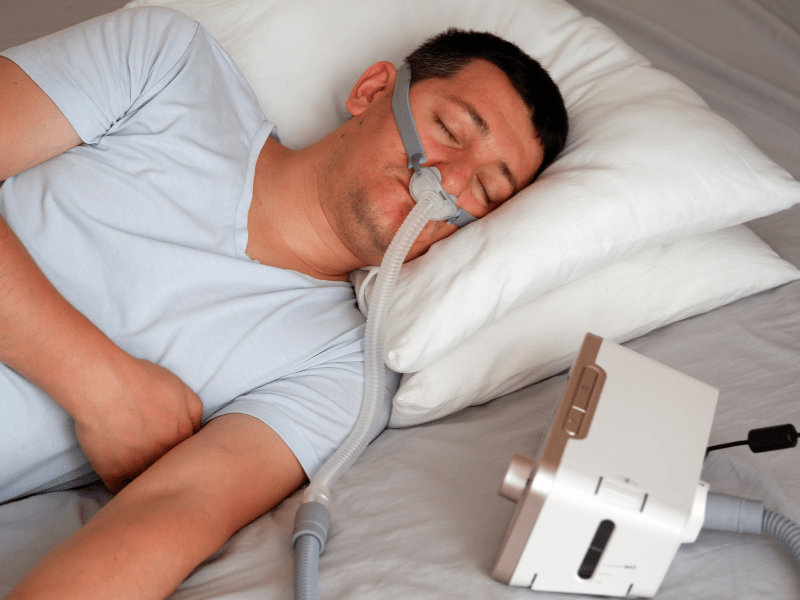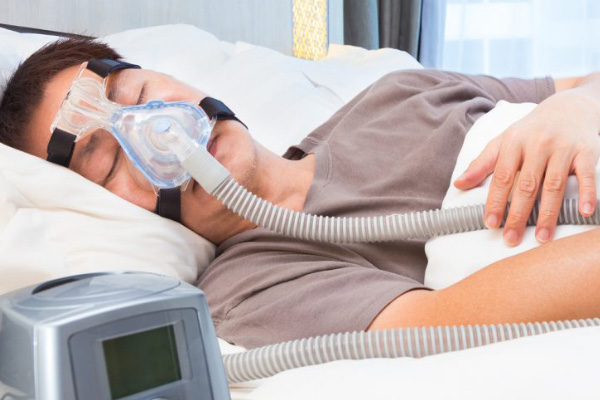Discover High-End BiPAP Rental Units at Competitive Prices
Bipap vs. CPAP: Which Is the Finest for Your Rest Disorder?
When navigating the intricacies of sleep disorders, the choice between BiPAP and CPAP treatment is an essential consideration. Each modality offers distinct advantages customized to particular conditions, yet the choice depends upon individual person needs and convenience degrees. While CPAP gives a consistent airflow suitable for obstructive rest apnea, BiPAP's twin stress settings may enhance convenience for those with even more detailed respiratory concerns. Recognizing these distinctions can considerably affect therapy effectiveness, leaving one to consider which choice really lines up with their health needs and way of living.
Recognizing Sleep Disorders
Rest disorders incorporate an array of problems that disrupt typical sleep patterns, influencing both the quality and period of remainder. These disorders can materialize in numerous types, including insomnia, rest apnea, narcolepsy, uneasy leg syndrome, and parasomnias. Each condition presents one-of-a-kind difficulties, frequently bring about substantial daytime fatigue, cognitive disability, and emotional disturbances.
Sleep problems is identified by difficulty falling or staying asleep, while rest apnea involves repeated disturbances in breathing throughout sleep, often causing fragmented remainder. Narcolepsy, on the various other hand, is marked by too much daytime drowsiness and abrupt rest attacks. Restless leg disorder triggers unpleasant sensations in the legs, prompting an uncontrollable urge to move them, which can likewise prevent the capacity to sleep.
The impact of rest disorders prolongs past private health, influencing general efficiency, partnerships, and top quality of life. Understanding the details nature of each condition is critical for efficient medical diagnosis and therapy. As sleep health comes to be significantly recognized as a crucial part of general well-being, dealing with these disorders is essential for improving both sleep top quality and everyday performance.
Just How CPAP Functions
Constant Favorable Air Passage Stress (CPAP) treatment is frequently utilized as a primary treatment for obstructive rest apnea (OSA) The mechanism of CPAP involves the usage of an equipment that provides a constant stream of air through a mask used during sleep. This air flow keeps favorable stress in the respiratory tract, avoiding the collapse or blockage of the throat that can happen throughout rest.
When a client takes in, the CPAP machine provides a continual flow of air, making certain that the respiratory tract continues to be open - BiPAP Rental. This not only relieves the symptoms of OSA, such as snoring and interrupted rest patterns, however additionally reduces the involved wellness threats, including cardiovascular complications and daytime exhaustion
The stress settings on a CPAP device can be tailored to meet individual person requirements, often figured out with a sleep study. Overall, CPAP therapy has been shown to considerably boost the high quality of sleep and general wellness for people enduring from obstructive sleep apnea.
How BiPAP Functions
BiPAP, or Bilevel Positive Air Passage Stress, is a specific type of non-invasive air flow that is specifically valuable for clients with problems such as complicated sleep apnea or respiratory conditions. Unlike CPAP, which supplies a continual stream of air at a single stress, BiPAP supplies 2 distinct pressure settings: a greater inspiratory pressure for breathing and a lower expiratory pressure for he has a good point exhalation. This dual-pressure approach permits for easier breathing, decreasing the initiative required during exhalation.
The gadget runs via a mask fitted over the nose or mouth, connected to an equipment that produces atmospheric pressure. When the patient breathes in, the device provides the greater pressure to aid with air movement, making certain that the airway stays open. Upon exhalation, the equipment immediately minimizes the pressure, making it more comfortable for the person to take a breath out.

Secret Distinctions In Between BiPAP and CPAP

In comparison, BiPAP (Bilevel Positive Airway Stress) supplies 2 various stress setups: one for inhalation and a reduced one for exhalation. This twin pressure system permits even more comfortable breathing, specifically for patients that have problem with breathing out against a continual stress. BiPAP is commonly advised for people with complex sleep apnea, chronic obstructive lung illness (COPD), or those that need additional assistance during sleep.
Additionally, the complexity of BiPAP devices normally leads to a greater expense and calls for much more careful titration than CPAP. BiPAP Rental. Understanding these crucial distinctions can help in identifying which device might be extra ideal for specific sleep disorders, establishing the groundwork for enlightened treatment choices
Picking the Right Treatment
How can one determine the most ideal treatment for handling sleep conditions? The decision in between BiPAP and CPAP treatment largely pivots on the particular features of the sleep disorder, the individual's overall wellness, and their comfort with the device. CPAP, which supplies a continual stream of air, is commonly prescribed for obstructive rest apnea (OSA) It preserves an check open air passage throughout sleep, effectively preventing hypopneas and apneas.
Alternatively, BiPAP supplies 2 degrees of stress: one for breathing and a lower one for exhalation. This twin pressure system is useful for people with intricate rest apnea or those that experience difficulty exhaling versus a constant stress. Furthermore, BiPAP is commonly advised for people with respiratory system problems, such as persistent obstructive lung disease (COPD), where differing stress settings can enhance convenience and check my reference compliance.
Eventually, a thorough evaluation by a sleep expert, including a rest research, can assist figure out which treatment aligns ideal with the person's demands. Variables such as convenience, ease of use, and specific clinical conditions should additionally be taken right into factor to consider to optimize treatment results.
Verdict
In recap, both BiPAP and CPAP offer distinct objectives in the administration of sleep disorders. CPAP is effective for obstructive rest apnea with regular airflow, while BiPAP uses dual stress setups that enhance comfort for those with intricate sleep apnea or breathing concerns. The choice in between these therapies should be directed by individual demands and problems, necessitating a thorough assessment by a rest professional to make certain optimum treatment outcomes and improved quality of sleep.

Overall, CPAP therapy has been shown to significantly enhance the high quality of sleep and total health and wellness for individuals experiencing from obstructive sleep apnea.
BiPAP is commonly recommended for individuals with complicated rest apnea, chronic obstructive lung condition (COPD), or those that require extra support during sleep.
CPAP is reliable for obstructive rest apnea with consistent air flow, while BiPAP uses dual pressure settings that enhance comfort for those with complicated sleep apnea or breathing concerns.